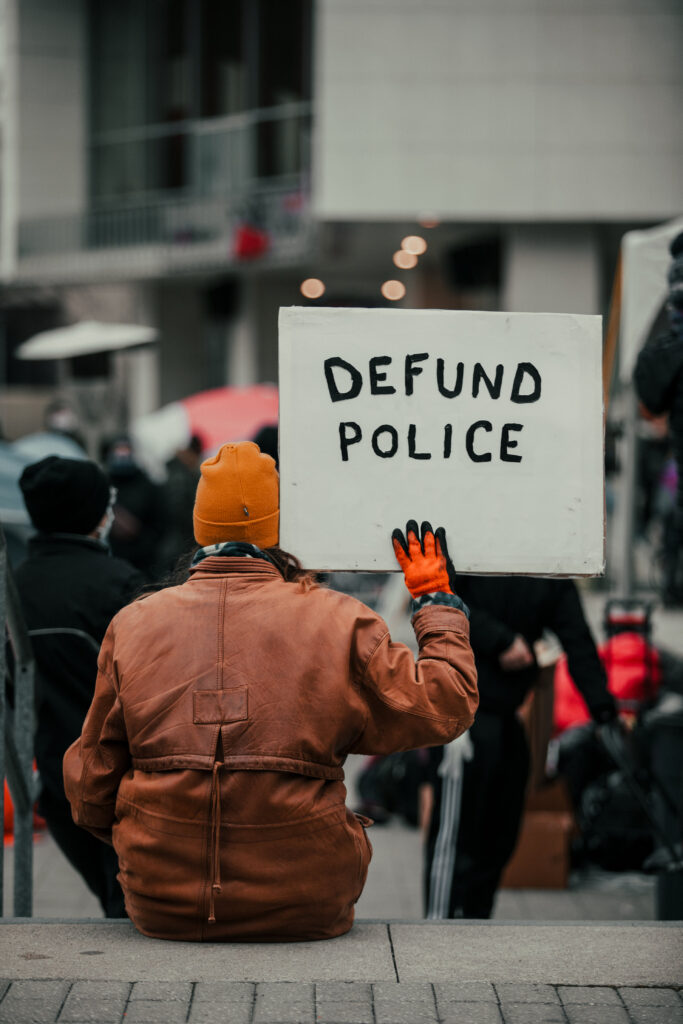
On May 25, 2020, in the city of Minneapolis, Minnesota, the actions of four officers sent a shock wave through this country that ignited a powder keg of riots and looting in some major cities. Worse, it cost the life of George Floyd who those officers had, by virtue of their office, sworn to protect. This is not to state that the police officers were innocent or guilty of his death (for there is still debate on what actually occurred), yet it did cause turmoil and racial division.
As a result, groups such as Black Lives Matter and Antipha have called for the defunding and, if possible, the complete disbandment of police departments around the nation. The stance that law enforcement as a whole was dangerous, racist, and ineffective was being voiced loudly by these and other organizations, and it has reached the ears of city governments, and even Congress.
This led to the introduction of the bill HR 4194 of the 117 Congress “The People’s Act” on June 28, 2021 by Missouri Congresswoman Cori Bush. This legislation, if passed by Congress and signed into law by the president, would develop, within the Department Of Health and Human Services, a division of public safety that would focus on health concerns and not criminal ones. It would take away police response and authority in certain mental health situations, thereby eliminating most, if not all, police response to mental health calls coming into 911 dispatch.
On the “Defund the Police” website home page put out by Black Lives Matter, under Alternatives to Police Services, this sentiment is expressed:
“The police service is a dangerous option for people experiencing a mental health crisis–but for many, it’s the only option. By defunding the police, significant resources can be reallocated to create a new community emergency services to support mental health needs of our vulnerable community members. Teams trained in de-escalation and who root their work in community-informed practices could provide crisis support and care”.
Their goal is to create a federally funded task force in communities that would direct dispatchers to dispatch, not the police, but a group of unarmed professionals (Psychiatrists, Psychologists, licensed counselors, mental health workers, etc.) to crisis calls of mental illness and substance abuse. The claim is that this approach to public safety would decriminalize these health concerns and decrease the need or presence of the police intruding into these victim’s lives. Without the police having to deal with these burdensome calls, they can focus on more important issues. It would also reduce the amount of police use of force and shootings that are prone to occur. It would be safer all the way round.
Although it sounds good on paper, there are concerns regarding this approach from opponents of this bill. One in particular is the safety of those responding. What would take place if the victim becomes violent? What if one of the “victims” is actually a dangerous wanted person? Would they call for the police to respond and have them wait in their cruisers while the task force goes on scene? These are important questions that need to be answered.
That being said, there are not many, even those that support their local police department, that believe policing response and actions don’t need further scrutiny to detect training flaws and improve on public safety. I, myself, have seen training policies change several times over my twenty year career to improve the behavior and actions of law enforcement. As a matter of fact, our department would routinely train officers that would involve us watching videos of other officers getting into troubles with their tactics, and giving us directives on how to avoid them.
Police officers, when dealt with stressful events, are groomed to fall back on their training. However, when police officers become complacent, they tend to drift from that training and develop their own way on how to deal with situations. They make mistakes, some costly ones. These ways of handling the public are not what they have been taught. It is doubtful that there are any accredited and reputable police departments that teach the knee on the throat defensive tactic.
So, what is the solution? Could this house bill be the key to promote a more progressive and safer community, at least on the mental health side? Or are there other solutions that would be more effective? How about more strenuous standards and training for police recruits? One thing is for sure, no one piece of legislation is going to fix this.
One idea is to defund the police. Although not a complete dismantling, it would still take a significant amount of city or state funds designated to law enforcement, and reallocate it to community based programs, or at least that is what is being suggested. So, is this a good remedy? Are there better ones?
It is time that we deal with both the pros and cons of defunding the police. You will see some of the proponent’s, as well as the opponent’s claims of this issue. These presentations are designed to create positive and effective discussion. Please proceed to the next article in this series, The Pros of Defunding the Police.
++++++++++++++++++++++++++
DON’T LET YOUR ATTACKER GET TO THIS POINT–PROTECT YOURSELF NOW AND
CLICK BELOW!!

